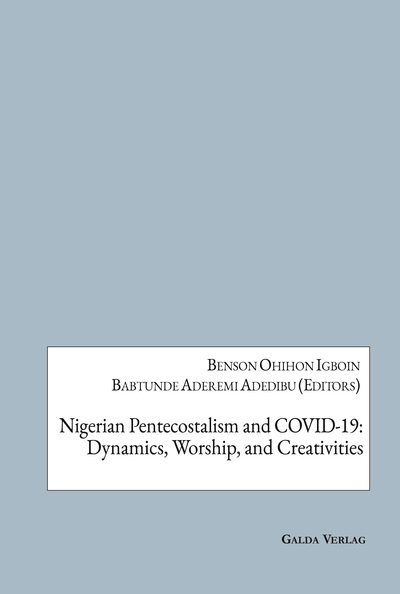- EAN13
- 9783962032173
- Éditeur
- GALDA VERLAG
- Date de publication
- 5 mai 2022
- Collection
- ASIAN STUDIES
- Nombre de pages
- 172
- Dimensions
- 23 x 15,5 x 1 cm
- Poids
- 296 g
- Langue
- eng
Nigerian Pentecostalism And Covid-19: Dynamics, Worship, And Creativities
Ezeilo Joy Ngoz
GALDA VERLAG
Prix public : 48,30 €
The coronavirus pandemic ruptured the ways things were done before it. Christian liturgy creatively migrated from the physical to the internet, the orbital wherein it sometime operated. This volume, while taking the issue of e-worship and e-mission of the Pentecostal churches seriously during the lockdown, it grounds them on empirical methods. It studies how Nigerian Pentecostal ecclesial processes were altered during the lockdown, and revisioning them in the context of the new normal. The resort to family/home fellowship as the basic unit of the church and society raises critical theological issues for a contextual Christianity. In addition, how does the Bible speak to a Christian in a new normal; does the faith of a Christian plot a graph from pre-COVID-19 through COVID-19 and perhaps beyond? As a church in the gap, how did Pentecostal Christianity in Nigeria raise theological, philosophical, social, ethical, and political questions that will for long agitate the mind when looking back to the year 2020? Why the dissonance in the health and wealth theology of Nigerian Pentecostalism - a rupture that separates wealth from health - even if momentarily? What are the implications of such a split, given the historical trajectory and (social) media sensitisation/sentimentalisation that was accorded to this particular teaching? What are the Pentecostal theatrics that characterised the lockdown? What are the theological implications of carving identity and class during the pandemic when it is unambiguous that the disease does not recognise such distinctions? These and other teething questions are pungently addressed in this volume.


















